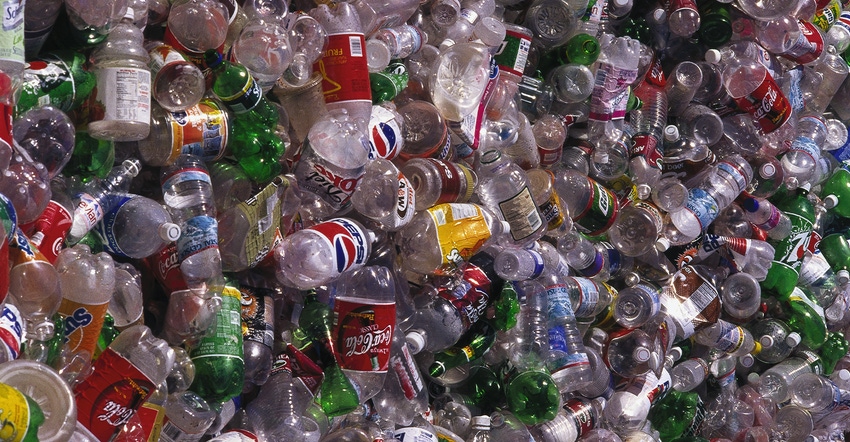As the plastic waste issue continues to compound across the globe, a new report suggests that the amount of waste is estimated to triple by 2060. A new document from the Organization for Economic Co-operation and Development (OECD), a group founded in 1961 to bolster economic progress, suggests policy directives that can be taken to improve waste infrastructure for plastics.

As the plastic waste issue continues to compound across the globe, a new report suggests that the amount of waste is estimated to triple by 2060.
A new document from the Organization for Economic Co-operation and Development (OECD), a group of 38 member countries founded in 1961 to bolster economic progress, suggests policy directives that can be taken to improve waste infrastructure for plastics.
OECD Secretary-General Mathias Cormann commented: "If we want a world that is free of plastic pollution, in line with the ambitions of the United Nations Environment Assembly, we will need to take much more stringent and globally coordinated action."
The report stated that half of all plastics produced by 2060 will be sent to landfill while less than a fifth will be recycled or diverted. Because of the dilemma, Global Plastics Outlook: Policy Scenarios to 2060, examines "concrete policies" that are able to morph the lifecycle of plastics to eliminate and reduce waste.
Without "radical action" that will reduce plastic demand, lengthen product lifespans and develop a better waste infrastructure, the plastics problem is set to compound as the global population and incomes increase. Packaging, low-cost products and textiles were identified as "short-lived items" that are the catalyst for plastic pollution.
Exactly how much will it increase? The OECD reported that 460 million tonnes of plastic were produced in 2019. That is expected to grow to 1.2 billion tonnes by 2060, surpassing the rise in raw material use. While "emerging" development in countries such as those in Africa and Asia will exacerbate the issue, member countries within OECD such as the United States, France, Germany and Spain will produce an average of 238 kg of plastic waste per person than those in non-member countries (77 kg).
"Global Plastics Outlook: Policy Scenarios to 2060" looks at the impact of two potential scenarios. The first, a regional action scenario comprising a mix of fiscal and regulatory policies primarily in OECD countries could decrease plastic waste by almost a fifth and more than halve plastic leakage into the environment without a substantial impact on global GDP, which would be lower by 0.3% by 2060. The second, a global action scenario comprising more stringent policies implemented worldwide, could decrease plastic waste by a third and almost completely eliminate plastic leakage to the environment while lowering global GDP by an estimated 0.8%.
So, what's the solution?
An amalgamation of fiscal and regulatory policies targets at OECD countries could reduce the amount of plastic waste by a fifth and cut plastic leakage into half, according to the OECD.
This would amount to a "substantial impact" on global gross domestic product (GDP), which reached $84.7 U.S. dollars in 2020. If blanket but stringent policies spanning all countries were implemented, plastic waste could potentially be reduced by a third, eliminate plastic pollution and lower GDP by .8 percent, the organization discovered.
With a circular economy at the top of mind, a more circular economy can be developed in taxes on plastics, which included packaging, were introduced. In addition, reuse and repair must be incentivized.
The OECD also recommended setting targets for recycled content in new plastic products as well as a focus on extended produce responsibility (EPR). Global waste infrastructure must be improved as well as collection rates.
The report supplements the organization's Global Plastics Outlook: Economic Drivers, Environmental Impacts and Policy Options, which was released in February 2022. That document discovered that plastic waste has doubled over the past 20 years, with plastic materials arriving most often in landfills, being incinerated or finding their way into the environment. As a result, the United Nations consortium has committed to collaborating on a legally-binding international agreement by 2024 to combat plastic pollution.
About the Author(s)
You May Also Like




